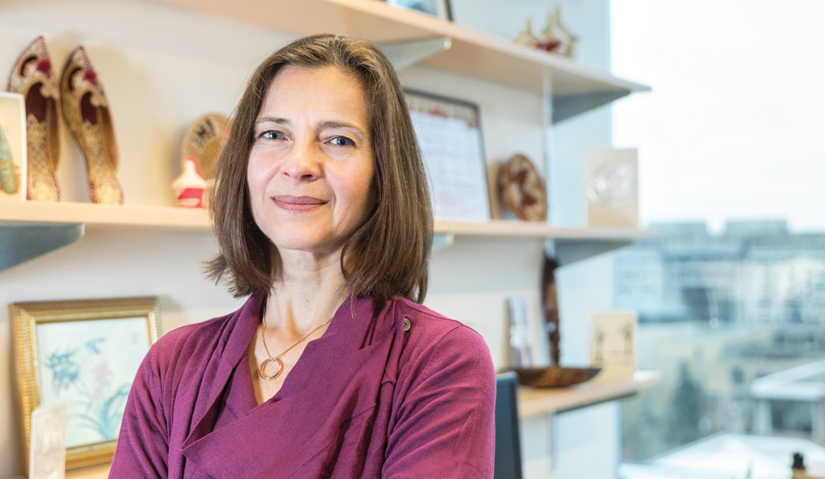
Michaela Hynie
PSYCHOLOGY
OVER THE PAST TWO YEARS, 40,000 Syrians fleeing conflict in their home country have resettled in Canada. How well are they adapting to their new life? That’s the key question Psychology Professor Michaela Hynie asks in a study that measures the integration of 1,932 adult Syrian refugees living in Ontario, British Columbia and Quebec.
Hynie is leading a team of 20 researchers who are participating in Refugee Integration and Long-term Health Outcomes in Canada, a five-year, $1.35 million pan-Canadian study funded by the Canadian Institutes of Health Research. They are assessing the refugees’ integration levels from 2016 to 2021 by tracking their social connections, employment, housing, social services usage and sense of belonging. The project also compares the integration outcomes of government-assisted versus privately sponsored refugees to determine the strengths and weaknesses of each model.
“We have very little longitudinal data on the integration of refugees in Canada,” Hynie says. “By monitoring their long-term physical and mental health, we can identify what improvements might need to be made to best meet newcomers’ needs.”
Hynie and her research partners, including colleagues from universities, settlement, health and community organizations, and Syrian newcomers’ themselves, are conducting in-person interviews with refugees in six cities across Canada. This community-based research approach is one Hynie has practised for 12 years, and it’s a topic she teaches in York’s fourth- year Psychology Advanced Community Based Applied Research course. She sees it as fundamental to translating research findings into practical solutions that communities can use.
“When doing a project that could have real-world applications,” Hynie says, “it’s important to work directly with the community that’s involved.”
